This is what we are up against
Each day, 58 people in Australia are diagnosed with breast cancer and 9 people die to this disease. Each death is one too many, and research is critical to better understand breast cancer and ultimately save lives lost to this disease.
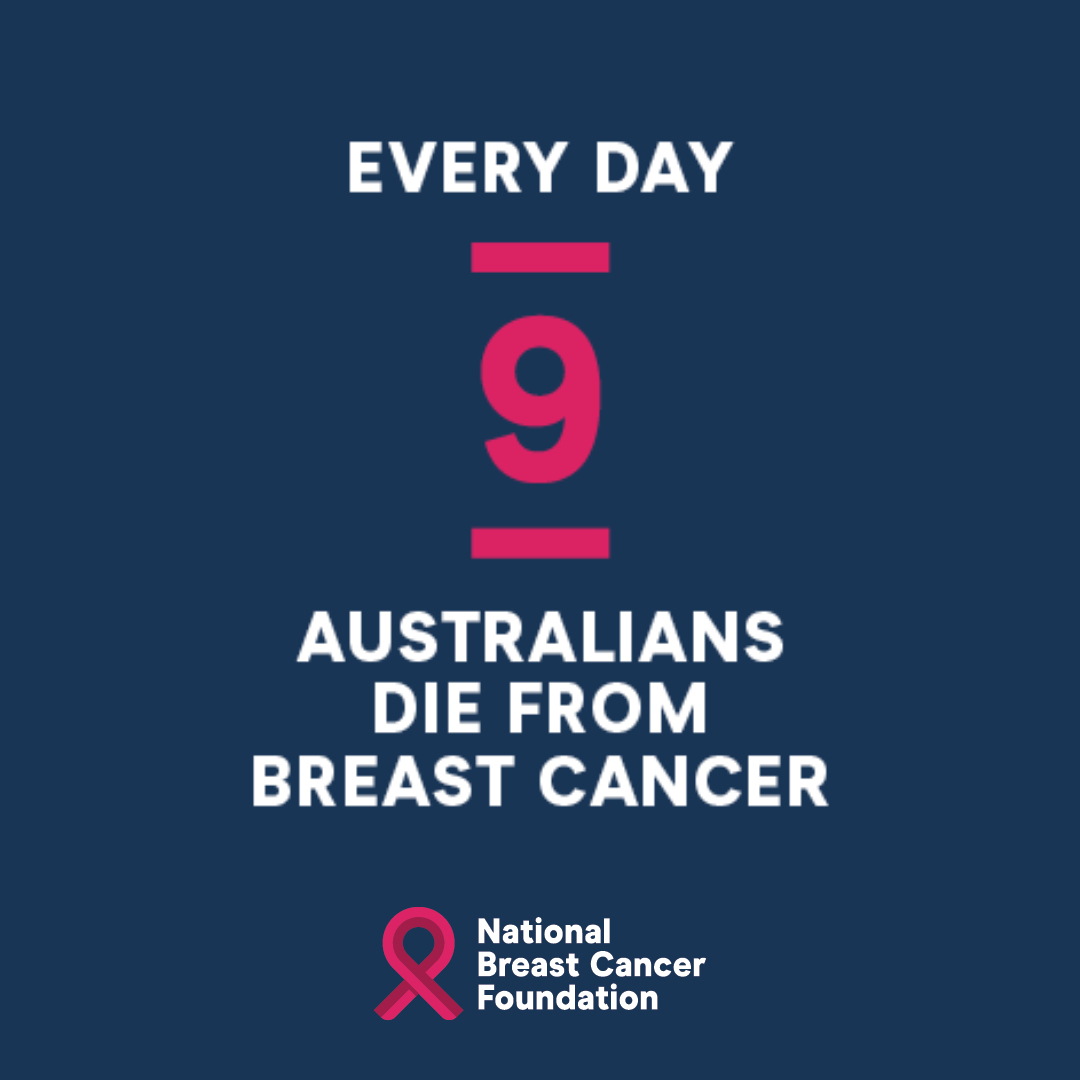
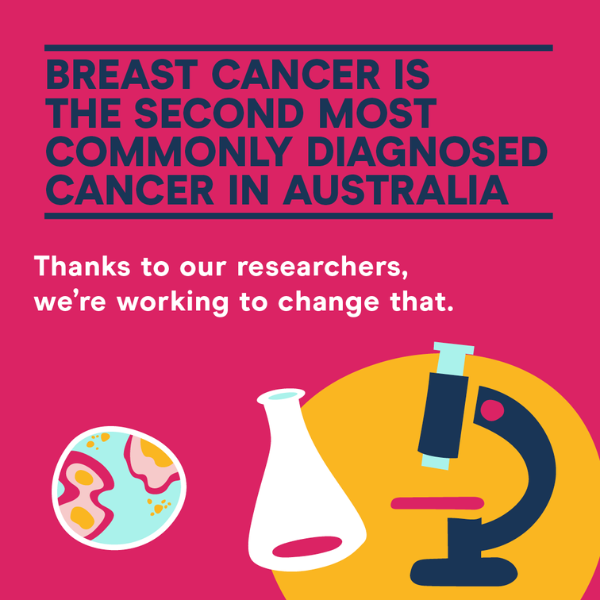
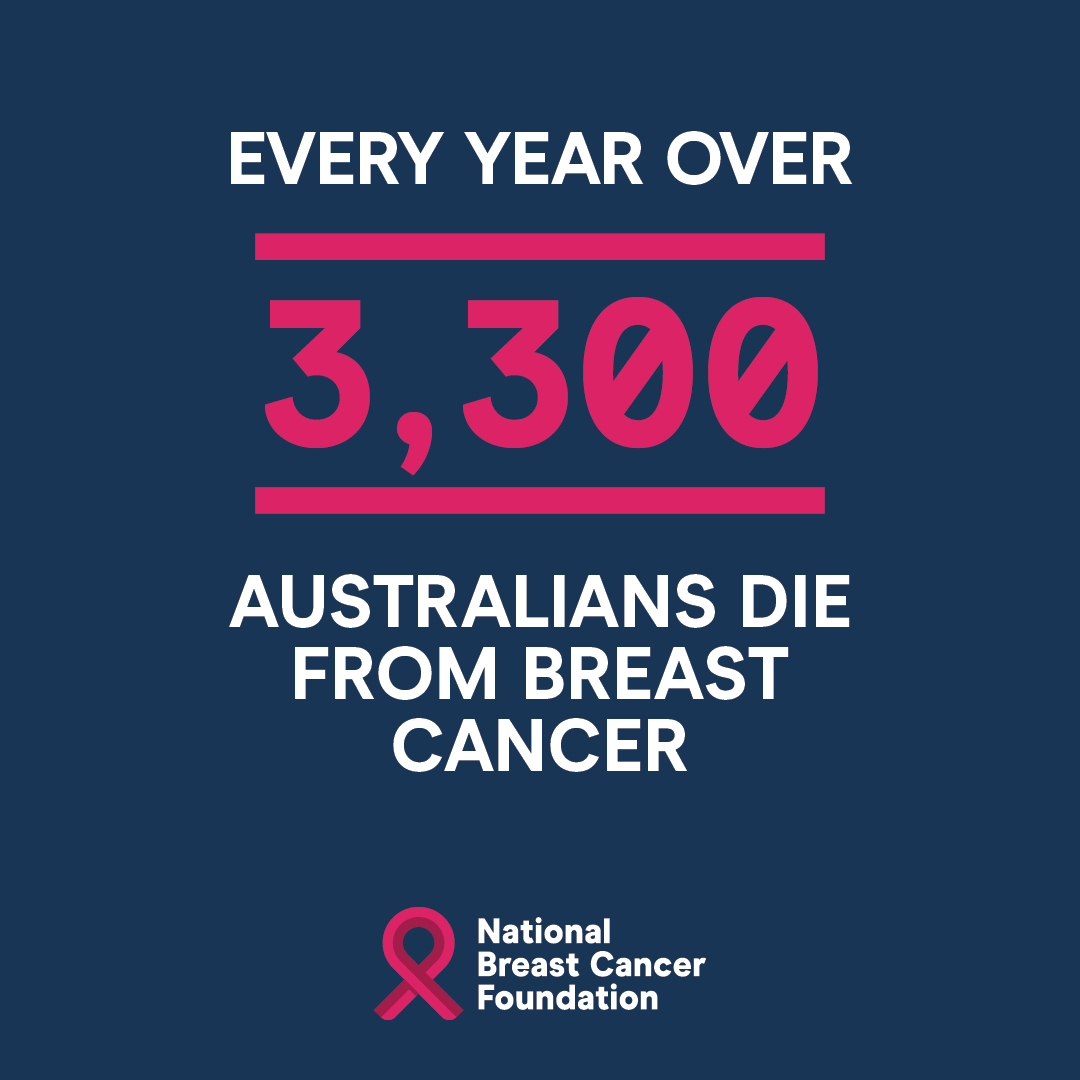
Where your money goes
When you Swim for Breast Cancer by swimming 9km throughout November, the funds you raise for the National Breast Cancer Foundation (NBCF) support world-class breast cancer research. Ongoing research is critical to better understand, prevent, detect, treat and stop breast cancer and ultimately create better treatment outcomes for the 9 people in Australia that die from breast cancer every day.
The more we raise, the more research we can fund to drive progress towards our vision of Zero Deaths from breast cancer. We need your help to fund research into:
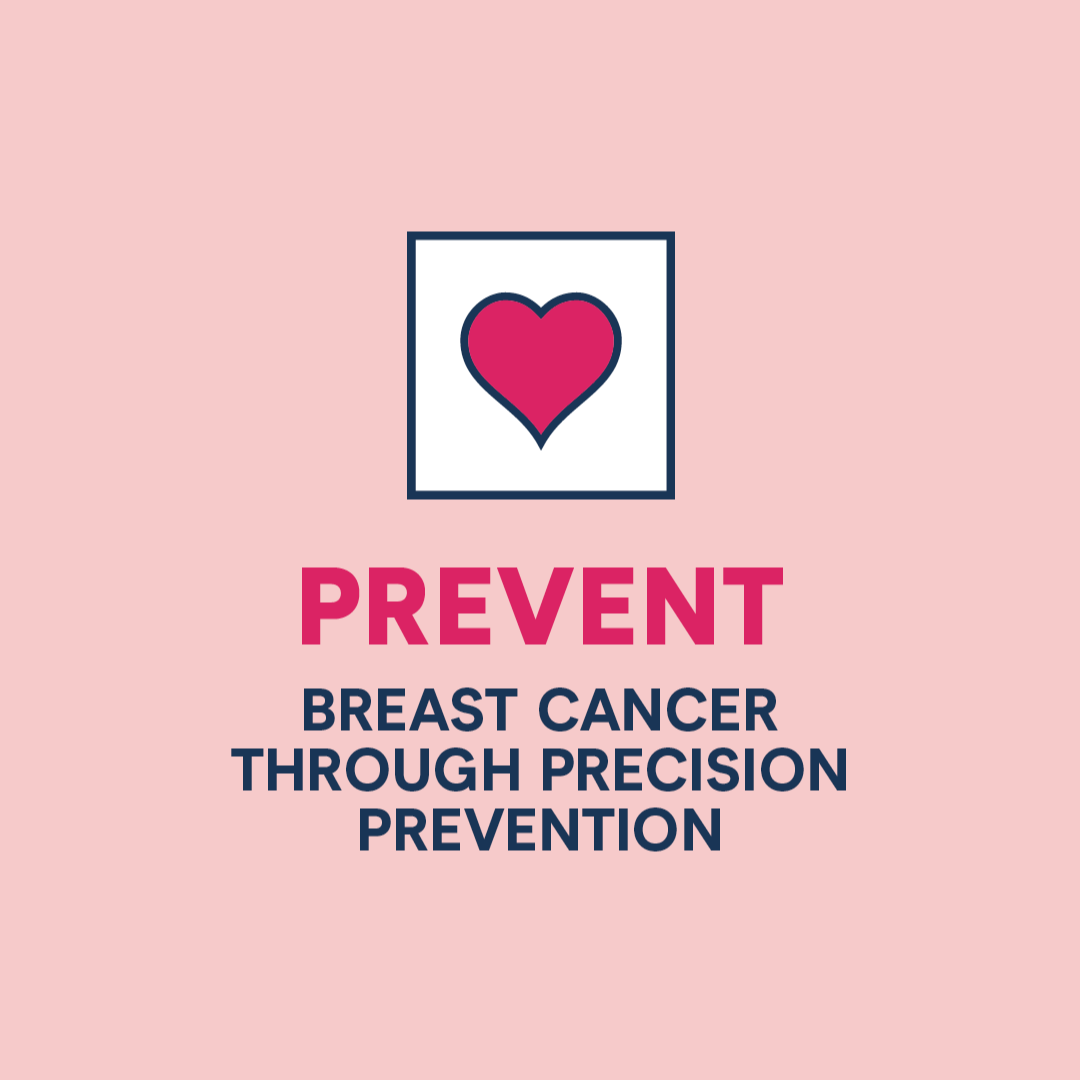
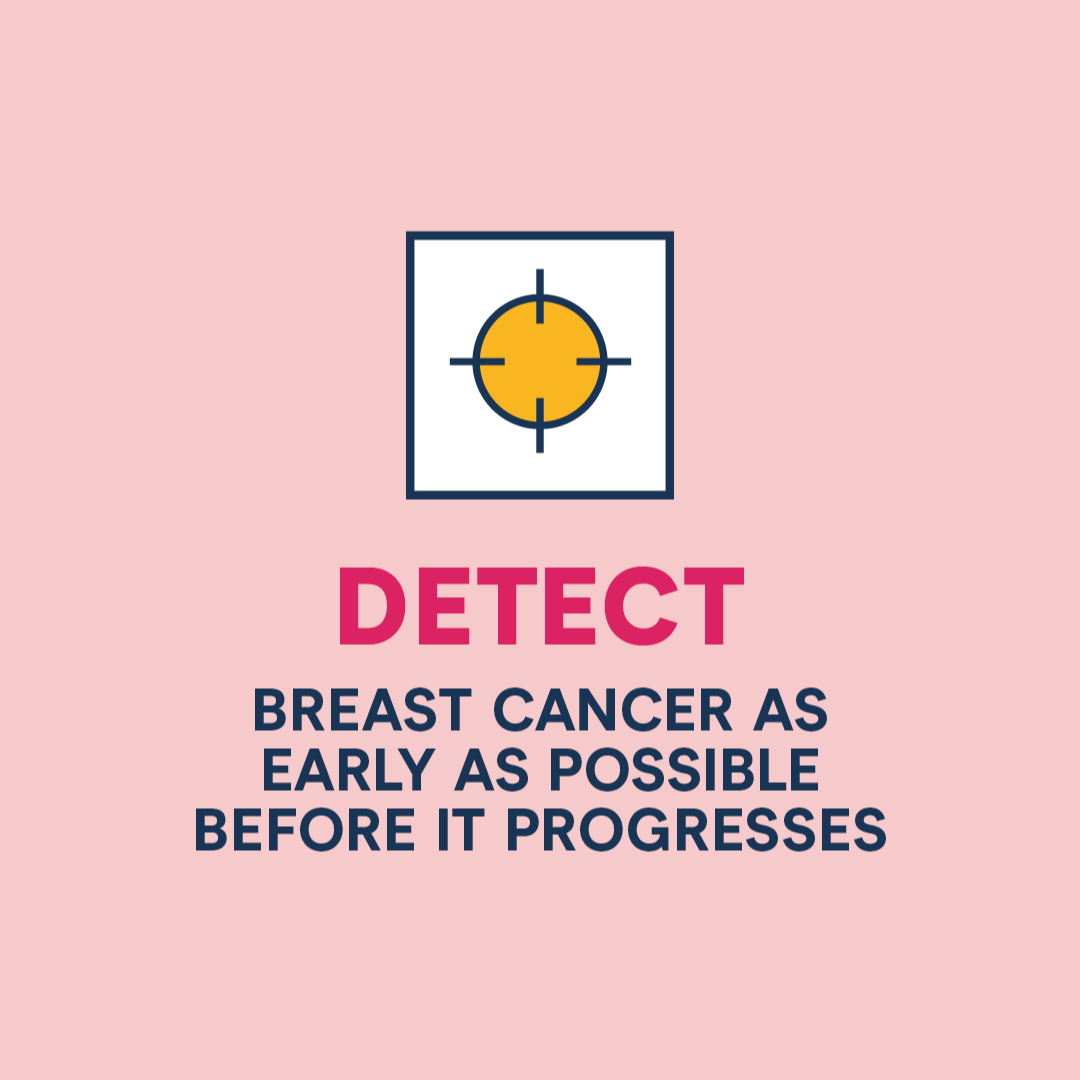
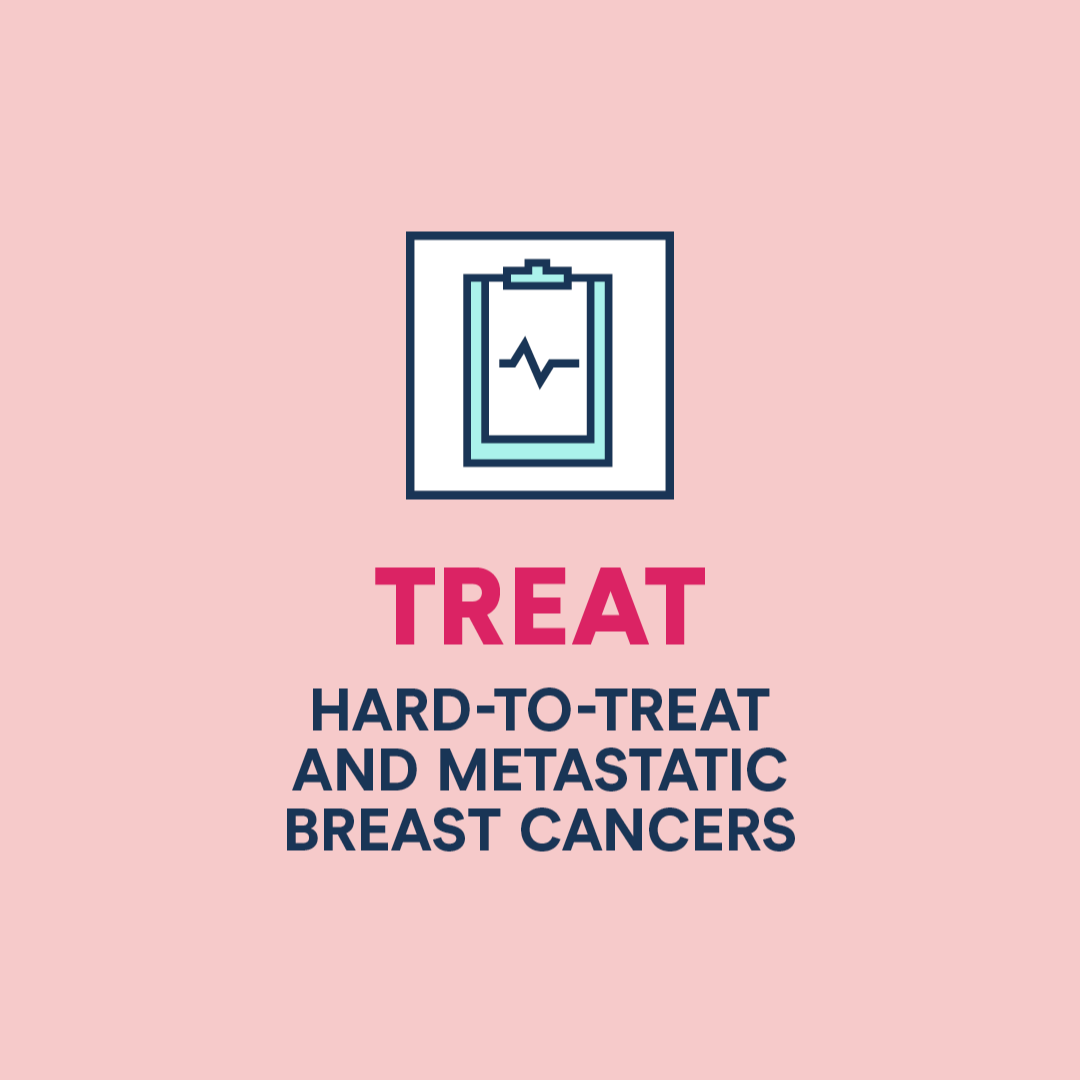
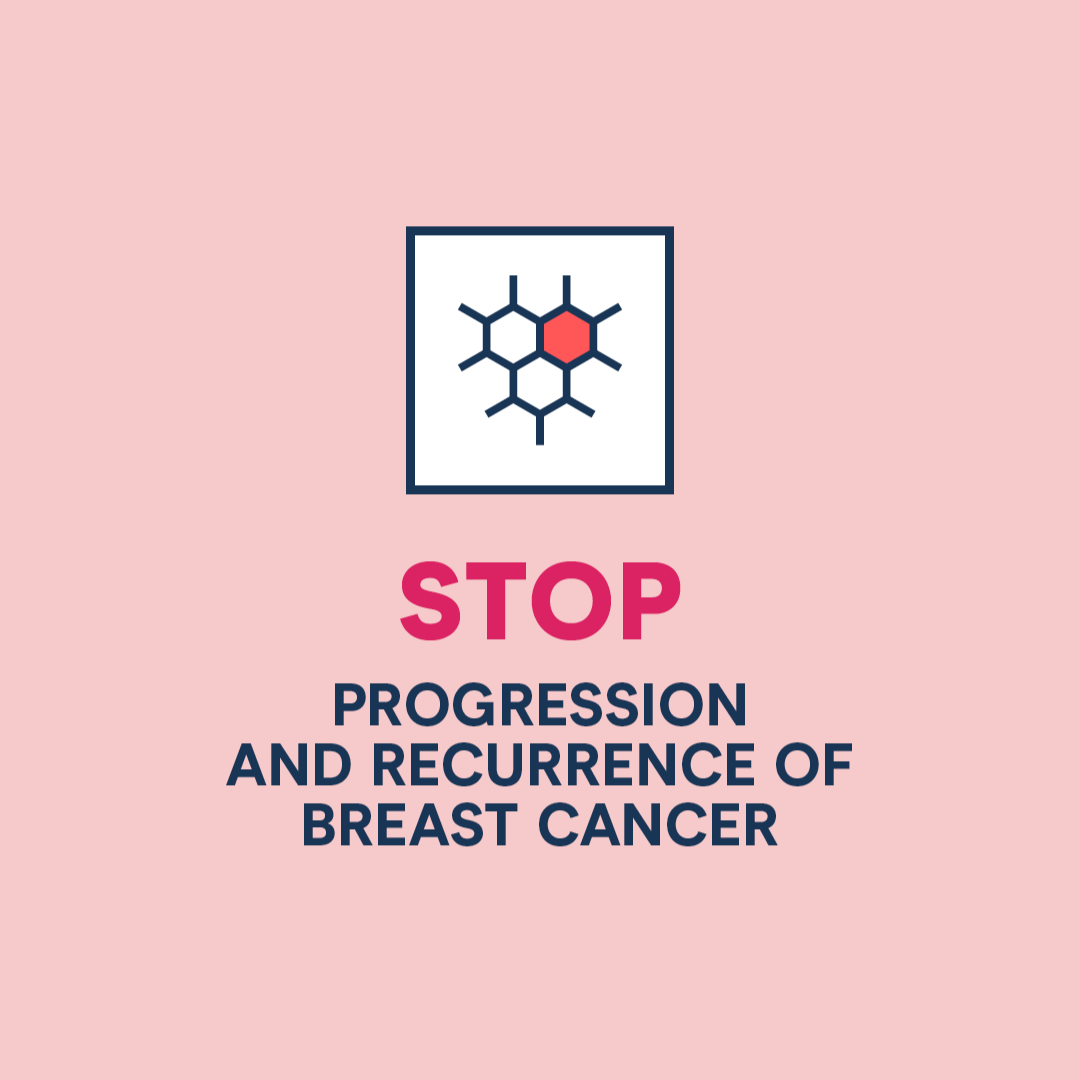
Meet some of our NBCF-funded researchers
The earlier breast cancer is found, the greater the chance of survival – early detection is one of the most powerful approaches available to end deaths from breast cancer. Advancing how we detect breast cancer is essential to achieving the National Breast Cancer Foundation's (NBCF) vision of Zero Deaths from breast cancer.
Click below to meet some of our NBCF-funded researchers who help us reach our vision of Zero Deaths from breast cancer.

Dr Luke Marinovich
THE UNIVERSITY OF SYDNEY
Project name: Advancing breast cancer screening with the use of cutting-edge technologies
THE CHALLENGE: Some breast cancers can be missed by mammograms (2-dimensional imaging) used for population-based breast cancer screening.
Implementation of Artificial Intelligence (AI) and Digital Breast Tomosynthesis (DBT) (3-dimensional imaging technique) in a population screening setting could potentially reduce the number of cancers missed.
Dr Susan Malta
THE UNIVERSITY OF MELBOURNE
Project name: A study of twins and sisters for predicting breast cancer risk from mammograms
THE CHALLENGE: While breast screening mammograms have been a standard practice in Australia and the effectiveness is evident in the reduction of breast cancer related deaths, screening protocols have remained largely unaltered.
Improving breast cancer screening by identifying the women most at risk of breast cancer, automatically at the time of their mammograms, could achieve better survival outcomes and further reduce deaths from this disease.
Find out more


